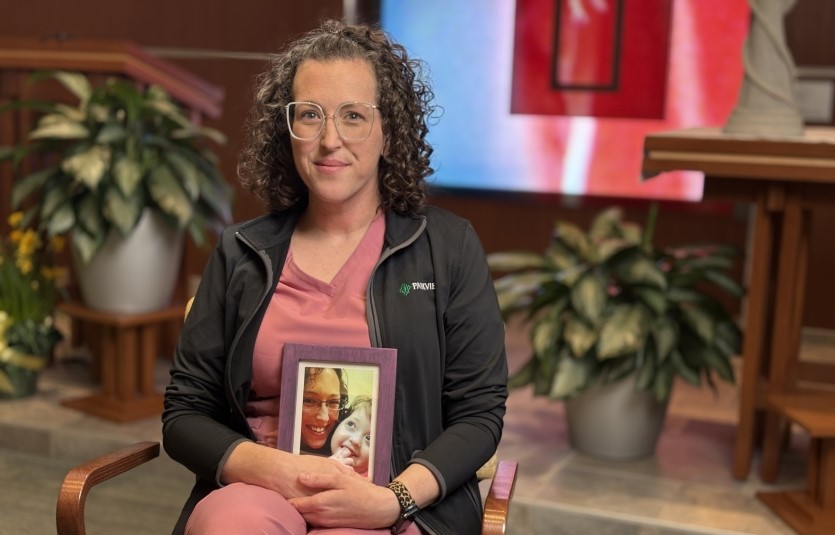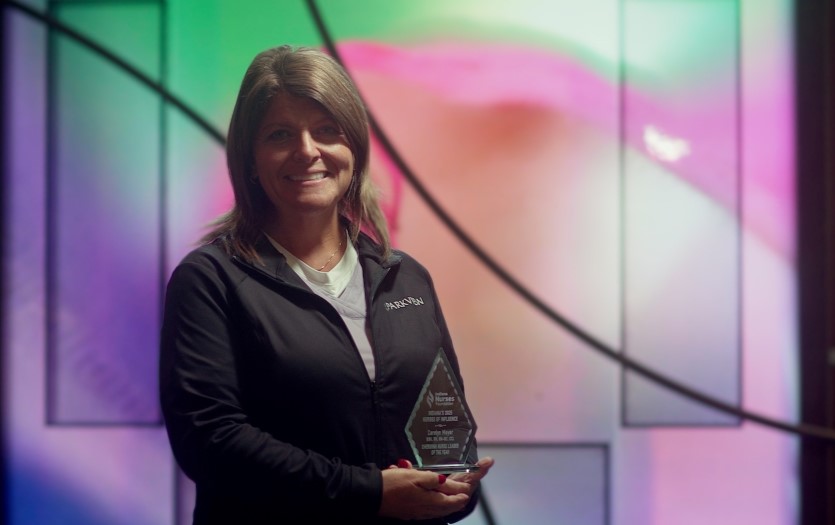
"Gabby was full of life. She couldn't talk, but that didn't mean that she didn't have a ton of personality," said Maria Roddy, LPN, reflecting on the mark her daughter left. "It's hard to sum up her life of the six and a half years that I had with her. How do you sum up somebody who had such a big impact on your life in this amount of time? You can't. She taught me to be kind. She taught me to slow down. She's why I am a nurse."
Becoming a caregiver
Maria's path to nursing began early, when, at 18, she became a state-tested nurse aide (STNA), also commonly referred to as a certified nursing assistant (CNA). But it wasn't until years later, after Gabby's arrival, that her calling became clear.
At a routine 20-week ultrasound, doctors discovered abnormalities in Gabby's brain and liver. "They told us that she had something wrong with her liver and that the ventricles in her brain were not formed correctly. And that the brain matter that was there was not correct either."
In a single moment, Maria's perception of the future changed, and the months leading up to the end of her pregnancy were filled with uncertainty. It wasn't until her 38-week appointment that a neurologist gave her hope. "He told me to go home and start planning for her life instead of her death," Maria recalled.
On July 2, 2009, Gabby entered the world kicking and, most miraculously, screaming. "I delivered her breech, she came out sunny side up and left leg first," Maria said. "They told me that she would never take a breath, so hearing her scream was unlike anything."
Maria and Gabby spent two days in the hospital. During that time, many of the complications the doctors had warned Maria about hadn't appeared. "They brought her to me and they said, 'Take her home, treat her like a normal child.'"
But in the weeks that followed, Maria and her family began to realize the scope of Gabby's needs. "We found out there were a lot of abnormalities. She had glaucoma, and she had to have several eye surgeries. She was legally blind at that point." Gabby was diagnosed with Muscle-eye-brain disease (MEB), a rare form of muscular dystrophy.
Finding her path
Like many parents of children with complex medical conditions, Maria's role evolved to meet Gabby's developing needs. A member of Gabby's care team stepped in and informed Maria of an opportunity that would allow her to become Gabby's paid caregiver.
Consumer-directed personal assistance programs can make providing full-time care to a loved one more feasible without sacrificing financial stability. That same nurse helped Maria enroll in a local college nursing program. "Once I found out that there was a way that I could provide for all of my children and give my daughter the best life possible, it was a very easy decision to make."
Over the course of her life, Gabby underwent 67 medical procedures. "None of them were to give her more days on this Earth," Maria explained. "It was to give her a better quality of life while she was with us."
She passed away on March 19, 2016, surrounded by the people who loved her most, including her family and the dedicated caregivers who had become a part of it.
Closing reflections
Gabby's life, through the joy she brought and bonds she created, continues to shape the kind of nurse Maria strives to be.
"She taught me to be compassionate, so this is my opportunity to give back to those who gave to me so selflessly when they didn't have to," she said. "I see these patients come in and I can relate to them because I can see their struggles. I want to make sure every patient that comes into the room feels that they're taken care of and that I am there for them."



